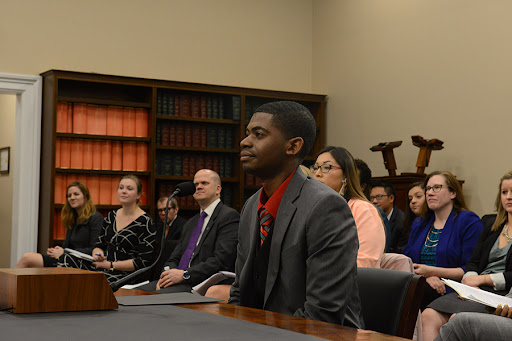
Living in Greenville all my life helped me believe in the American Dream. But belief isn’t enough. You also need hard work. I learned that from my parents, who work seven days a week to support their four children. Yet sometimes, neither belief nor hard work can solve everything. That’s what it was like when I attended college. I needed academic support to do my best. I wasn’t sure what I wanted to do, although I knew I wanted a career in the helping professions.
Yet I didn’t know what career path to choose. Figuring out how to navigate the college bureaucracy wasn’t easy. That’s where federal TRIO programs help — a lot.
TRIO is an umbrella term. It applies to eight federally-funded programs to help students succeed in college who are low-income, disabled, or “first generation,” meaning those whose parents never graduated from college. They start as early as middle school (Talent Search) and high school (Upward Bound). The one that helped me — Student Support Services — started in college. The programs include:
- Coaching and academic help.
- Extra classes.
- Assistance in applying for college, financial aid, and advice and encouragement.
I know it’s easy to get cynical about federal programs — things we imagine were dreamed up by someone far away in Washington. But this program helps me and hundreds of other students succeed. That became apparent when I started attending Lurleen B. Wallace Community College. I did well in high school, but I struggled with several of my college courses. I got academic assistance from the Student Support Services staff.
The program director and staff helped me figure out the complicated transfer process to a four-year college. Without their help, I would have found myself among the 72 percent of low-income first-generation community college students who fail to transfer without additional support. Nationally, TRIO Student Support Services participants transfer at a rate that is 46 percent higher, making it more likely that they will graduate from college and get higher-paying jobs.
Thanks to the program’s assistance at Lurleen B. Wallace Community College, last fall, I enrolled as a junior at Alabama State University, majoring in Health Rehabilitation to become an occupational therapist. Coming to a four-year institution where I didn’t know anyone, I felt lost. But then, I found the Alabama State TRIO office, and I felt like TRIO lifted a weight off my shoulders. The staff continues to give me the academic and social support I need to succeed as I attend classes and work 30 hours a week. When I graduate, I will be the first person in my family to earn a bachelor’s degree.
However, I know I won’t be the last. Because Student Support Services played such a significant role in my college life, I ensured that my younger brother, now a community college freshman, also got involved with the program.
Federal TRIO programs help thousands of students graduate and better themselves. They make the difference between failing or passing classes; dropping out or persevering; succumbing to overwhelming pressures, or learning to thrive amidst adversity.
I hope Congress will do everything possible to increase funding for the eight TRIO programs so that more students like me will have the opportunity to achieve their college dreams.